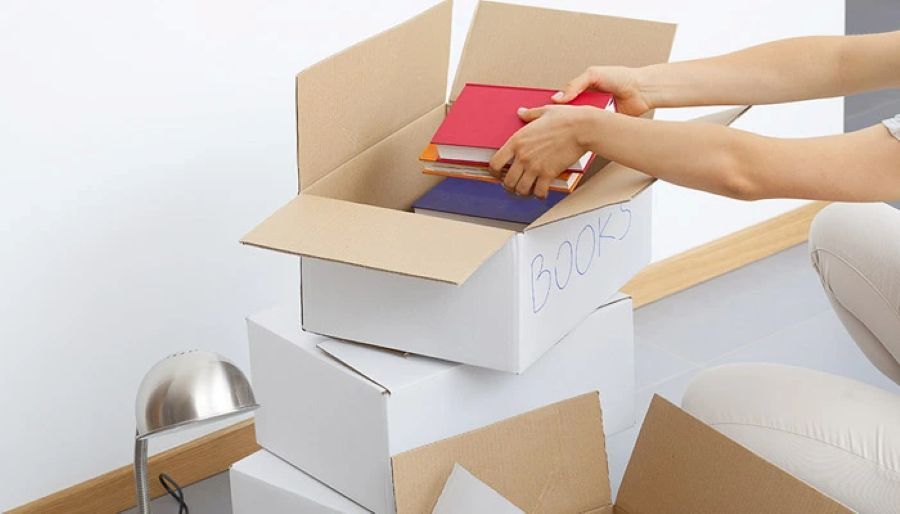How to Start Decluttering Before a Move?
You absolutely should start decluttering before your move. Getting rid of things you don't need before moving day will save you time, money, and stress. According to theFederal Motor Carrier Safety Administration, movers charge based on the actual weight of your shipment, so the less stuff you have, the less you'll pay. Plus, you'll start fresh in your new home without bringing old clutter with you.
This guide will walk you through exactly how to declutter before your move. You'll learn when to start, what to get rid of, and simple methods that make the whole process easier.
Why Decluttering Before Moving Matters
Moving gives you a perfect chance to start fresh. Think of it like cleaning out your closet, but for your whole house. Decluttering before moving can be very emotional and overwhelming — especially if you've never done it before, but the benefits are huge.
Save Money on Your Move
Every box and piece of furniture costs money to move. Moving companies typically charge by the hour, and the more items you have, the longer it will take them to move you. When you get rid of things first, you need fewer boxes, less packing materials, and sometimes even a smaller truck.
Make Packing and Unpacking Easier
When you only pack things you really want, everything goes faster. You won't waste time wrapping items you'll just throw away later. Decluttering before you move means fewer items to pack, transport, and unpack. Your new home will feel organized from day one.
Reduce Moving Day Stress
A clutter-free environment can have a positive impact on your mental health.Research by Princeton University found that our environment can positively or negatively impact our ability to complete tasks as well as our overall mental health. If the physical space around us feels scattered, it's likely our mental space will feel the same. Moving is already stressful enough without dealing with boxes of junk you don't even want. According toU.S. Census Bureau data, about 28 million Americans moved in 2022, and those who decluttered first reported much smoother experiences
When to Start Decluttering
The biggest mistake people make is waiting too long to start. According to Maija, one of the top mistakes people make when decluttering before moving is not starting early enough. "We always have way more stuff than we even imagine," she says. Depending on the size of your home or apartment, you may want to start at least two, six, or even 12 months before your move.
Timeline for Different Home Sizes
Small Apartment (Studio to 1 Bedroom): Start 6-8 weeks before moving
Medium Home (2-3 Bedrooms): Start 3-4 months before moving
Large Home (4+ Bedrooms): Start 6-12 months before moving
Starting early means you can take your time. You won't feel rushed to make quick decisions about important items. Starting to declutter early means it will be less rushed and more comprehensive because you'll have the time and energy to be thorough.
The Four Box Method: Your Simple Decluttering System
The easiest way to declutter is using the Four Box Method. The Four Box Method is a decluttering strategy which helps to make decluttering simpler, more manageable and much more effective. Get four boxes and label them:
Box 1: Keep
These are items you use often and love. Be honest with yourself. If you haven't used something in a year, you probably don't need it.
Box 2: Donate
Items in good shape that someone else could use. Clothes that don't fit, kitchen gadgets you never use, or books you've already read all go here.
Box 3: Sell
Valuable items you don't want anymore. Electronics, furniture, or collectibles that could bring in some extra money for your move.
Box 4: Trash
Broken, worn out, or expired items. With your Throw Away boxes, it is important that you throw these items away immediately. Do not let the boxes sit in your house for weeks.
Room-by-Room Decluttering Guide
Work through your home one room at a time. Professional organizer Nicole Gabai, the founder of B. Organized and author of The Art of Organizing: An Artful Guide to an Organized Life, suggests finishing a single room before moving on to the next space.
Kitchen Decluttering
Start with your cabinets and pantry. Look for:
- Expired food items - Check dates on everything
- Duplicate kitchen tools - How many can openers do you really need?
- Unused appliances - If a bread maker, stand mixer or air fryer has been collecting dust in your pantry for months, get rid of it
- Mismatched containers - Keep sets that have lids
Bedroom and Closet Decluttering
This is often the hardest room because of clothes. Try this simple rule: if you haven't worn it in a year, donate it. Also look for:
- Clothes that don't fit
- Shoes you never wear
- Old bedding and pillows
- Jewelry you don't use
Bathroom Decluttering
Bathrooms hide a lot of clutter in small spaces. Get rid of:
- Expired medications - Double-check the labels on prescribed medicines, and purge anything that's past its prime
- Old makeup and skincare - Most products expire after 12-24 months
- Extra towels - If you wouldn't want a guest to use them, you shouldn't be using them either
- Half-empty bottles - Use them up or toss them
Living Room and Common Areas
Focus on items everyone can see:
- Books you'll never read again
- Old magazines and papers
- Electronics that don't work
- Decorations you're tired of
- Games and toys no one uses
What to Declutter Before Moving: The Complete List
Some items are obvious candidates for decluttering. Here's what to look for in every room:
Items to Always Get Rid Of
Expired or Broken Items
- Old food, medications, and cosmetics
- Broken electronics or appliances
- Torn or stained clothing
Duplicates
- Extra kitchen utensils
- Multiple items that do the same job
- Books or movies you own in different formats
Size Issues
- Clothes that don't fit
- Furniture that won't work in your new space
- Items too big or small for your lifestyle
The 20/20 Rule
A general rule I have is, if it would take you less than 20 minutes and less than £20 to replace, it's not worth agonising over. 99% of the time you won't spare it another thought. This helps you let go of "just in case" items.
Simple Decluttering Methods That Work
The Marie Kondo Method
Marie's tidying process is not about decluttering your house or making it look neat on the spur of the moment for visitors. It's about tidying up in a way that will spark joy in your life and change it forever. Pick up each item and ask: "Does this spark joy?" If the answer is no, thank it and let it go.
Work through categories in this order:
- Clothes - Easiest to start with
- Books - Keep only favorites
- Papers - Most can be digitized
- Miscellaneous items - Everything else
- Sentimental items - Save for last when you're practiced
The 30-Day Minimalism Game
The 30-Day Minimalism Game, is a decluttering challenge created by Joshua Fields Millburn and Ryan Nicodemus, known as "The Minimalists." The game is designed to help participants gradually reduce the number of possessions they own over the course of a month.
Start 30 days before packing begins:
- Day 1: Get rid of 1 item
- Day 2: Get rid of 2 items
- Day 3: Get rid of 3 items
- Continue until day 30
By the end, you'll have decluttered 465 items!
Making Decluttering Easier
Get the Family Involved
Decluttering is a team effort, especially if you're moving with family members. Encourage everyone to participate in the process, whether it's sorting through belongings, packing boxes, or deciding what to keep or discard. Give each family member their own four boxes and let them work on their personal spaces.
Make It Fun
Another thing you can do before you start decluttering before moving is deciding how to make the process more enjoyable. For some, this means having a cup of coffee before cleaning out so they can ride the caffeine boost, while others like to put on their favorite playlist or podcast while the work takes place.
Try these ideas:
- Play upbeat music
- Set small rewards for yourself
- Work with friends or family
- Take before and after photos
Use the "Maybe" Box Trick
Can't decide about something? Keep your questionable items in this box for several months. If you haven't used them or saved them in either the "keep" or "storage" box, they probably weren't that important to you in the first place. Pack the maybe box separately and see if you miss anything after a few weeks.
Where to Get Rid of Unwanted Items
Donate Options
- Goodwill and Salvation Army
- Local churches and community centers
- Women's shelters
- Animal shelters (for old towels and bedding)
Selling Valuable Items
- Facebook Marketplace
- Craigslist
- eBay for collectibles
- Consignment shops for clothes and furniture
- Garage sales for quick cash
Eco-Friendly Disposal
- Electronics recycling centers
- Textile recycling for worn-out clothes
- Hazardous waste disposal for chemicals and batteries
Common Decluttering Mistakes to Avoid
Starting Too Late
Avoid leaving decluttering tasks until the last minute. Procrastination can lead to unnecessary stress and rushed decision-making. The last few days before moving are chaotic enough without making big decisions about your belongings.
Keeping "Just in Case" Items
Only what you need, use, or love. Do not hang onto things "just in case." Purge ruthlessly. If you haven't used something in over a year, you probably don't need it.
Trying to Do Everything at Once
Vicky advises tackling only small areas of your home at a time, to make the decluttering process less overwhelming. She advises: "Start with the room that has bothered you the most; the room with the most 'stuff' in it. Then, focus only on one area, instead of the room (or house) as a whole".
Not Having a Plan for Discarded Items
The same goes for your Give Away boxes. Put them in the car and take them to your local charity shop as soon as possible. Schedule donation pickups or drop-offs right away, or items will just sit around your house.
Decluttering Sentimental Items
Save sentimental items for last when you've practiced on easier things. Don't start the decluttering process by going through photographs, collections or mementos. You'll spend longer going through treasured items and it'll be harder to make decisions about things that are linked to memories and strong emotions.
Questions to Ask About Sentimental Items
- Does this item represent a happy memory?
- Would I be excited to display this in my new home?
- If I lost this in a fire, would I truly miss it?
- Can I take a photo of it instead of keeping the physical item?
Keep the Best, Let Go of the Rest
You don't need to keep everything to honor memories. Choose a few special pieces that really matter and let go of the rest. Consider creating a memory box or scrapbook for smaller keepsakes.
Digital Decluttering for Your Move
Don't forget about digital clutter! Use your move as a chance to clean up:
Computer and Phone Cleanup
- Delete old photos and videos you don't need
- Unsubscribe from email lists
- Clear out downloaded files and apps
- Back up important documents to the cloud
Important Documents
Homeowners should go through tax, medical, and housing paperwork, saving only what is necessary. Scan important documents and store them digitally. You'll need these for yourchange of address checklist.
Preparing for Professional Help
If decluttering feels overwhelming, it's okay to get help. Ourpacking services team can assist with sorting and organizing. Professional organizers can also help you make decisions about what to keep.
When to Consider Professional Help
- You're feeling overwhelmed by the amount of stuff
- You're short on time before your move
- You have mobility issues that make sorting difficult
- Family members can't agree on what to keep
Decluttering Timeline: 8 Weeks Before Moving
Here's a simple week-by-week plan to help you stay on track:
Weeks 8-7: Get Started
- Choose your decluttering method
- Buy boxes and labels
- Start with the easiest room
- Schedule donation pickups
Weeks 6-5: Main Living Areas
- Declutter kitchen and living room
- Sort through books and media
- List valuable items for sale
- Continue donating regularly
Weeks 4-3: Personal Spaces
- Tackle bedrooms and closets
- Go through bathroom items
- Clean out home office
- Take photos of sentimental items you're keeping
Weeks 2-1: Final Push
- Deal with remaining sentimental items
- Use up cleaning supplies and toiletries
- Confirm all donations are picked up
- Pack "keep" items as you go
Getting Your New Home Ready
As you declutter, think about your new space. If you're working withlocal movers, ask for a floor plan of your new home. This helps you decide what furniture will fit and what won't.
Questions to Consider
- Is my new home bigger or smaller?
- What's the storage situation like?
- Do I need different furniture for the layout?
- What items match the style I want in my new home?
Final Thoughts
Decluttering before your move takes time and effort, but it's worth it. You'll save money, reduce stress, and start fresh in your new home.UCLA research shows that families with excessive possessions experienced higher stress levels, with mothers especially affected by cluttered environments. Remember, Moving should be a new chapter in life, an opportunity for a fresh start. It's supposed to be thrilling, exciting, and fun!
Start early, work through one room at a time, and be honest about what you really need. Use simple methods like the Four Box System or Marie Kondo's approach to make decisions easier. Most importantly, don't try to do everything at once.
Moving doesn't have to be overwhelming. With the right preparation and a good decluttering plan, you can make your move smoother and start your new chapter with only the things that truly matter to you. Ready to start planning your move? Contact our team at Last Stop Moving for a free moving estimate and let us help make your transition as smooth as possible.



